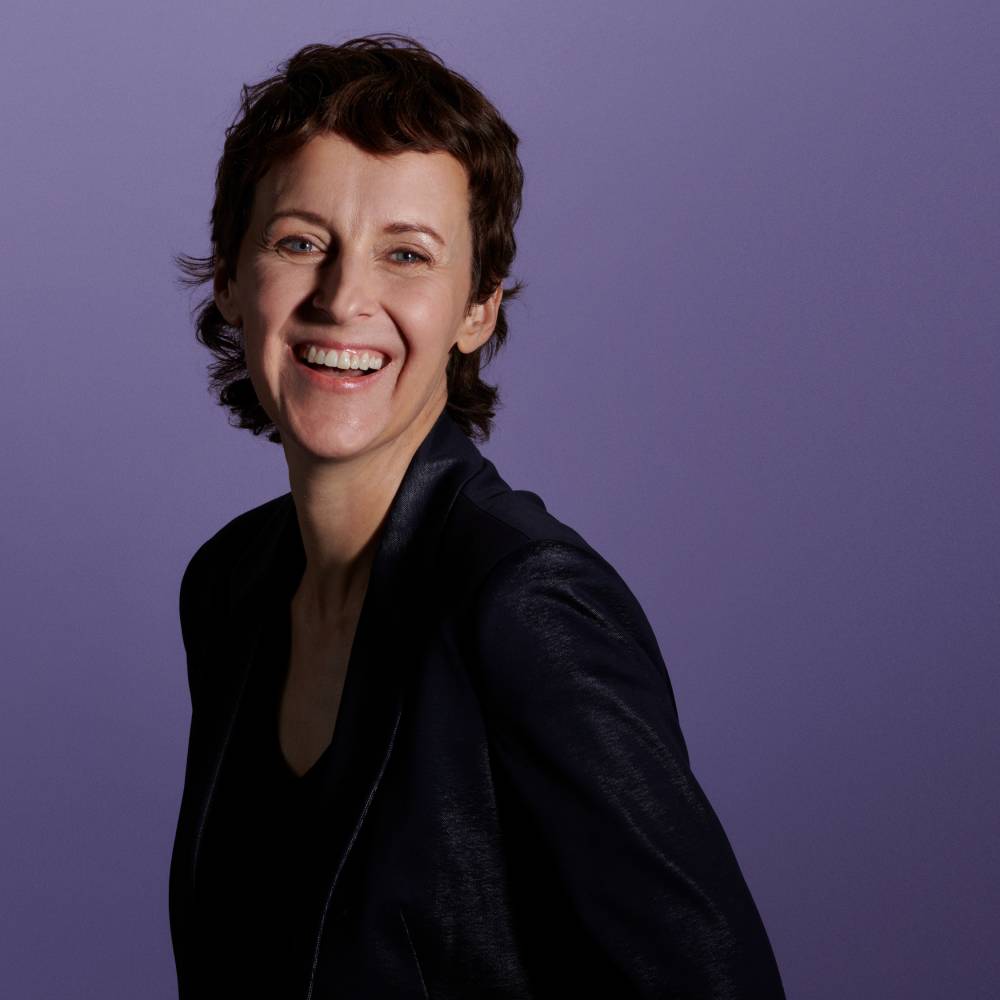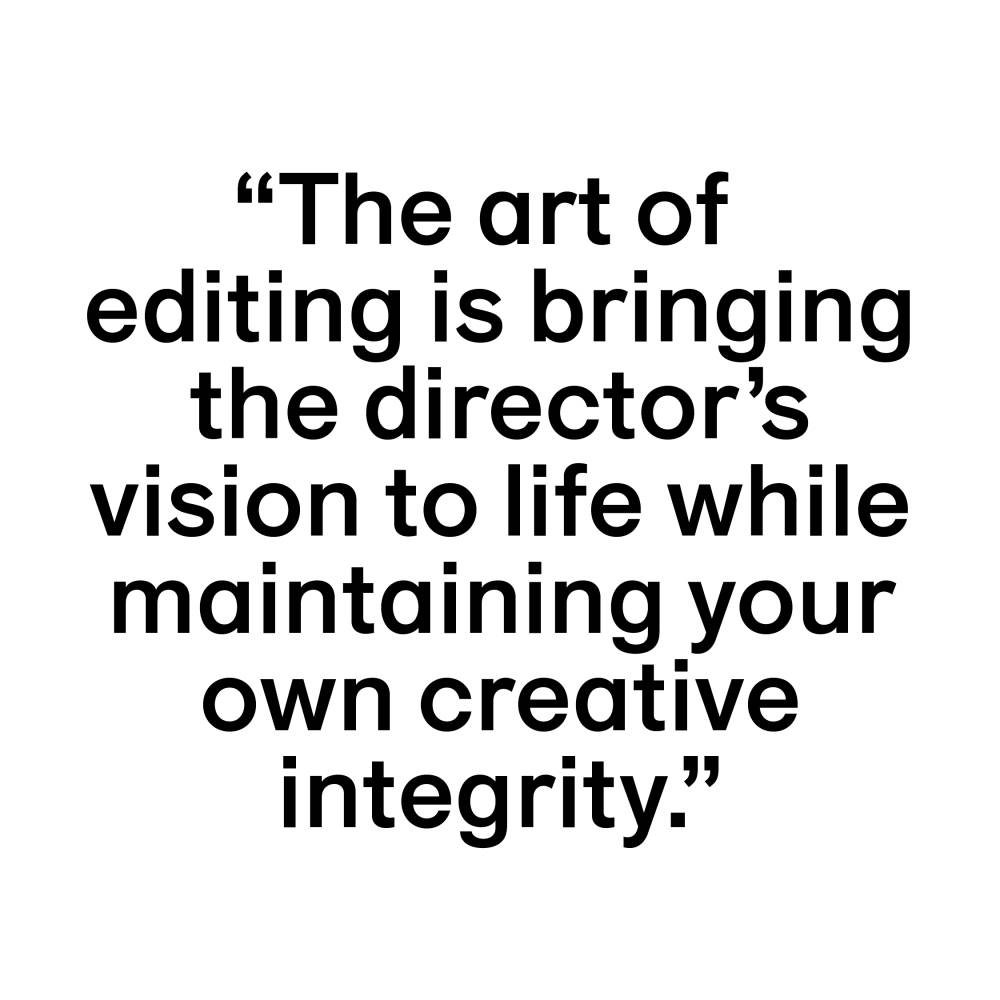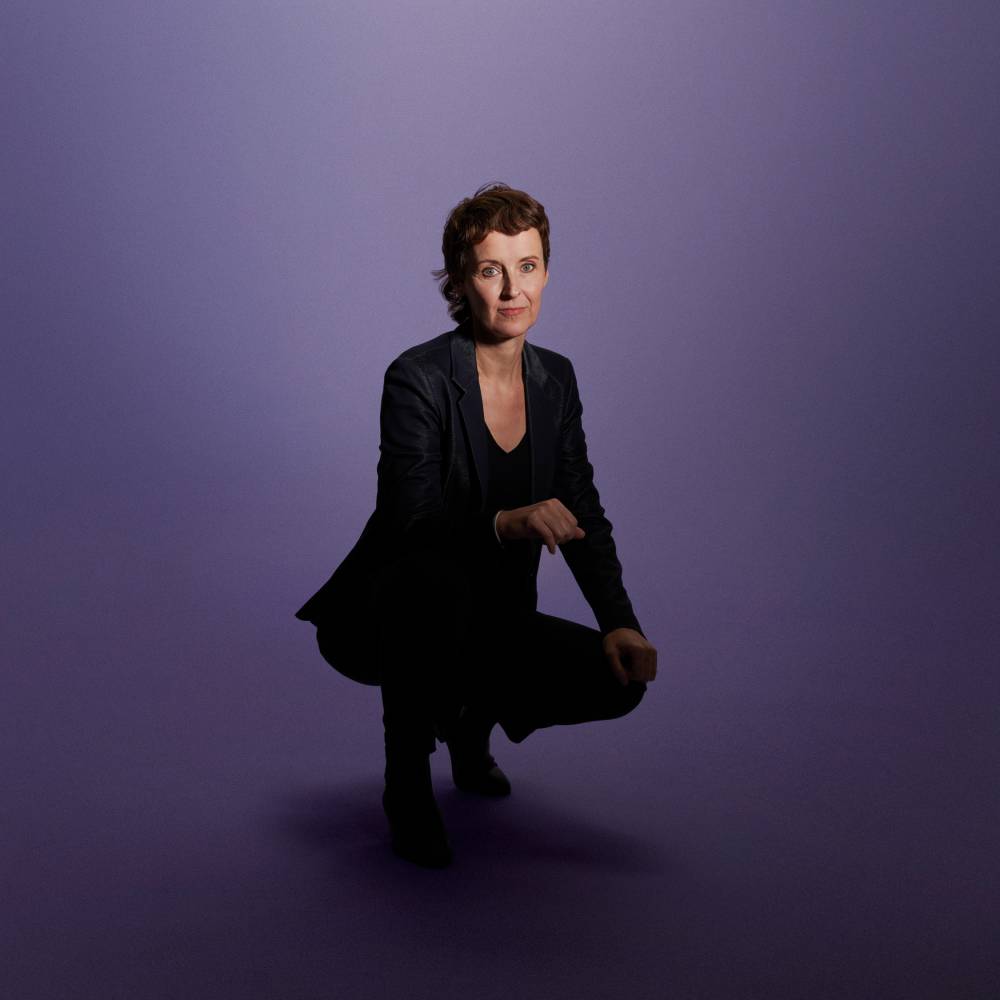Beyond the Screen
Caterina Mona on her Locarno premieres and the art of proper editing
22.08.2024
Caterina Mona has recently celebrated her second film premiere on the Piazza Grande in Locarno: Two years ago as a director and now as an editor with Simon Jaquemet's long-awaited film. A look back and a look forward to her various projects.



You edited “ELECTRIC CHILD”, which had its world premiere at Locarno. What fascinated you about this project?
I hadn't accepted any editing offers for several years in order to realize my own projects. When Simon asked me if I would be interested in editing his film, I hesitated at first. But after reading the script and a few interviews, I was enthusiastic: ELECTRIC CHILD is an ambitious project with a highly topical theme, its scope is a little wider than that of most Swiss films, and the team and cast are both high-level and international. From a content point of view, I also found fascinating the link between a real human tragedy and the possibility of rescue that AI could perhaps bring us in the future. In addition, the starting point of telling the story from the perspective of the nerdy computer scientist Sonny - like in a third-person video game, with the camera almost always filming over his shoulder - was a challenging editing technique that appealed to me.
What was a particular challenge in “ELECTRIC CHILD”?
The film combines a highly emotional subject - the serious illness of a newborn child - with the technical world of coding, artificial intelligence and all its servers, and the ‘real’ world of an AI-enabled being. Weaving these three elements into a meaningful and captivating whole proved to be a demanding challenge.
Your first feature film, “SEMRET”, had its world premiere at Locarno two years ago. What were the reactions that made the biggest impression on you?
To begin with, the making of SEMRET was already one of the best things I've ever experienced in my life. The whole team was absolutely fantastic and, even though it was my first feature film, I always felt well looked after. Feeling that solidarity changed me for good and I'd like to thank everyone who was there from the bottom of my heart.
Many reactions to SEMRET touched me. In particular, I remember the personal accounts that viewers shared with me after the screening. Many recognised themselves in the characters and conflicts portrayed and told me how much the emotional depth and authenticity of the film had touched them. It was wonderful to see how people from different cultures and backgrounds could identify with the story, even though it was set in a specific context.
In a previous interview, you said that you believed life would take you exactly where you needed to go.
The essence of that statement is that you can't know. I stick to that. I try to stick to what I do and remain open to the world. However, I would like to add here that I can live this maxim because I find myself in an extremely privileged position, and one for which I am very grateful.
Was there a defining moment for you that led you to the film industry?
There wasn't one moment, but one person: my mother. She came from a rather modest background and didn't have an academic education. Despite this, literature, art and cinema have always played an important role in her family. That is what she passed on to me.
What skills do you need to be a good editor?
I went to film school in Belgium and I quickly learnt that you really need a lot of different skills to do a good job. It generally helps to have a sound knowledge of film history and to keep up to date. You need a sense of storytelling, an interest in current and historical world events and in other cultures. You need to enjoy delving into the depths of the human psyche and have a sense of language(s) and rhythm. But the most important, in my opinion, is the ability to have your own will and your own vision, but to always put them at the service of the film.
You work closely with the director when editing, how intensive is the collaboration?
As with any close collaboration, there can be disagreements, but I've never had an argument. As I mentioned above, it's ultimately not my movie, and that's fundamental for me. There have been (a few) projects where I've realized that it doesn't work. But I'm radical about that and stop the process very quickly.
Who are the colleagues who inspire you?
As far as my work as an editor is concerned, there are four colleagues. June Kovach and her work, which I got to know and love as a child. For me, she was one of the best editors and her work has left an indelible mark on me. Tania Stöcklin inspires me both professionally and personally. Noemi Preiswerk is ‘my’ editor. I've known her privately for a long time and followed her career. For some years now, she has been pursuing her career in a focused way and has dared to cross the Atlantic, which I admire. And then there's Gion-Reto Killias: a wonderful person, extraordinarily talented and far too modest.
What language do you write your scripts in? Have you ever written scripts in a foreign language?
Mainly in German. Sometimes in Italian (mother tongue). And if I have a French-speaking script consultant, then in French. In the development of a script, there will always be an English version at some point - for labs, workshops, casting agents, etc. But I won't do it from the start, it will just be a working version. I love Spanish and I can get by orally, but I can't write it.
What projects are you working on at the moment?
I am currently working on the production of Erik Bernasconi's new film BECAÀRIA. This is a unique opportunity for me, and it's exciting to be involved in the organizational core of the film. As soon as I'm finished here - at the end of August - I'm looking forward to pursuing my own ideas again.
I have several projects at different stages of development. Some of the ideas are not so far removed from SEMRET in terms of subject matter. They're about family, transgenerational trauma and how to deal with it. But others are more along the lines of comedy. I'm going to have to make some choices, which won't be easy.
A which festival would you like to see one of your films?
I was lucky enough to show my first film on the biggest screen in Europe at Locarno. Of course, there are other exciting places, but at the end of the day, what matters to me is that the film touches the audience rather than where it premieres.